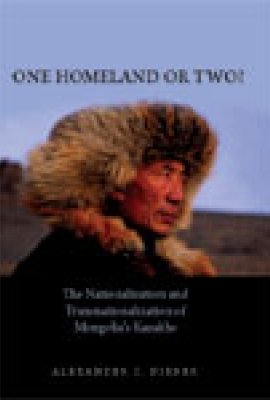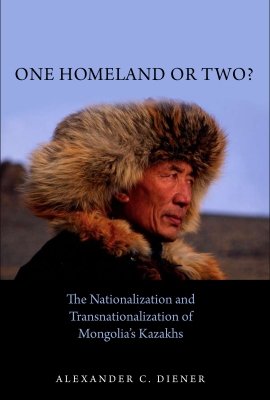Alexander Diener
Former Title VIII Short-Term Scholar
Professional Affiliation
Assistant Professor, Department of Geography, University of Kansas
Expert Bio
Alexander C. Diener is an Associate Professor of Geography at the University of Kansas. After earning his doctorate from the University of Wisconsin-Madison, Alex was a Title VIII Research Fellow at the Kennan Institute of the Woodrow Wilson Center. He then taught at Pepperdine University before taking a post-doctoral fellowship at George Washington University (2010-2011) and being named Regional Research Fulbright Scholar for Central Asia (2011-2012). Alex then moved to the University of Kansas where he works at the nexus of political, social, and cultural geography, engaging topics such as geopolitics and borders, identity and mobility, and urban landscape change. He possesses area studies expertise in Central Eurasia, working primarily in the Central Asian states, Mongolia, and the borderlands of Russia and China. Alex has authored or co-authored three books, co-edited three volumes, and published in a wide array of disciplinary and area-studies journals. The NSF, SSRC, IREX, FLAS, AAG, Fulbright, and the MacArthur Foundation have funded his research.
Wilson Center Project
“Narrating the Nation Through Urban Space – Bishkek and Ulaanbaatar”
Project Summary
Analyzing the capital cities in the Kyrgyz Republic and Mongolia provides a lens through which to view the relationship between elite and public perceptions of state ideology and their respective socio-cultural trajectories. To what extent are both engaging in a process of selective remembrance and active forgetting? How are new ideals manifesting in ambiguous spaces and banal practices of urban life? Can the emergence of globalized identities and cultural hybridities be mapped in urban space? In contrast to socialist era uniformity, post-socialist architecture and urban layout continues to evolve in terms of motivations, strategies, and consequences. This project demonstrates the agency of public actors and manner in which the citizenry either resists or promotes a given ideology or vision of the nation. These states offer fruitful comparatives relating to their respective relationships with Russia and China, efforts to join the global economy, and pathways toward social integration.
Major Publications
“From Socialist to Post-Socialist Cities: Narrating the Nation through Urban Space” co-authored with Joshua Hagen (Nationalities Papers v. 4 no.4, 2013) pp. 487-514
“City of Concrete and Felt: Negotiating Cultural Hybridity in Mongolia's Capital of Ulaanbaatar” co-authored with Joshua Hagen (Nationalities Papers v. 4 no.4, 2013) pp. 622-650
One Homeland or Two?: Nationalization and Transnationalization of Mongolia’s Kazakhs (Palo Alto, CA and Washington DC: Stanford University Press and Woodrow Wilson Center Press 2009 – ISBN 978-0-8047-6191-8) pp. 405
Previous Terms
Oct 1, 2003 - Jun 1 2004: "One Homeland or Two?: Diaspora, Territorialization, and Identity in Kazakhstan" Looks at how minorities within the former Soviet sphere are struggling to reconcile attachments within their state of residence and their ethno-national identities, compelling migration to a kin-state.
Insight & Analysis by Alexander Diener

- Publication
One Homeland or Two? The Nationalization and Transnationalization of Mongolia's Kazakhs

- Book
- Governance
One Homeland or Two? The Nationalization and Transnationalization of Mongolia's Kazakhs


